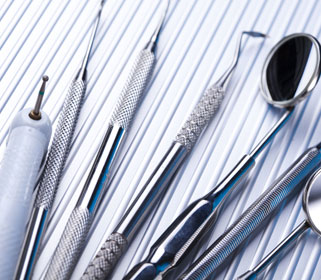Home » Surgical Instruments, Medical Surgical Supplies & Equipment » Choosing the Right Medical Instruments Helps to Save Lives » Choosing the Right Medical Instruments Helps to Save Lives
Choosing the Right Medical Instruments Helps to Save Lives
Every medical facility needs to be constantly supplied with medical instruments. Every one who works at that facility will find a need for high quality implements in order to offer the best in patient care. Poorly made equipment can lead to mistakes and cost lives, but by having the right supplies on hand, your facility can save lives. There are many categories of medical instruments and many things for which to look in all of those areas, but there are also some generalized tips which you should know prior to making your selection. These tips can help you to sort out the good from the bad in the realm of medical equipment.
Many different specialties require their own specific medical instruments. The specialist will dictate the exact pieces he will need for his practice. Anesthesia instruments are different from those which are required by an orthopedist or a surgeon. No matter which specialty you are catering to, you will need to find durable instruments which are made of high quality materials. In many cases, titanium is used for lightweight applications such as in surgical loupes. You will need a high grade stainless steel for many surgical options.
Whatever the material is, it should be rust proof and either be intended for single use, or have the ability to be sterilized for reuse. You can use an autoclave to sterilize your metal medical instruments prior to reuse or disposal. You should not, however, put rubber, latex, or many plastics into the autoclaves since the high temperatures reached by the steam inside will damage the material. There are cooler chemical means of sterilizing these materials. For instruments of mixed components such as anesthesia masks, the metal parts are typically removable in order to clean and sterilize the piece.
In order to find the best medical instruments, you will need to get those pieces which are made of long-lasting, durable materials. They should be easy to clean and sterilize. If a piece cannot be properly cleaned, bacteria can multiply on its surface and lead to an infection in a patient with a weakened immune system. This could have deadly consequences. The documents accompanying the equipment will explain the best method of sterilization for that particular piece. It is best to follow the manufacturer's instructions concerning cleaning and sterilization methods in order to extend the life span of the instruments. For the best pieces for the doctor to use, you should follow his recommendations for medical instruments according to his preferences.
If you are looking for specific information concerning a particular piece of medical instrument, further information is available about those under their respective names. You can also ask the doctor for his preferences in materials, brands, sizes, etc. A consultation with the physician who is being supplied should always occur if possible prior to ordering the medical instruments he will need. This will save you the cost of purchasing the wrong equipment. If the practitioner is unable to use the pieces available, it could result in medically hazardous mistakes, but by having instruments with which he is comfortable working he can work at his best to save lives.













